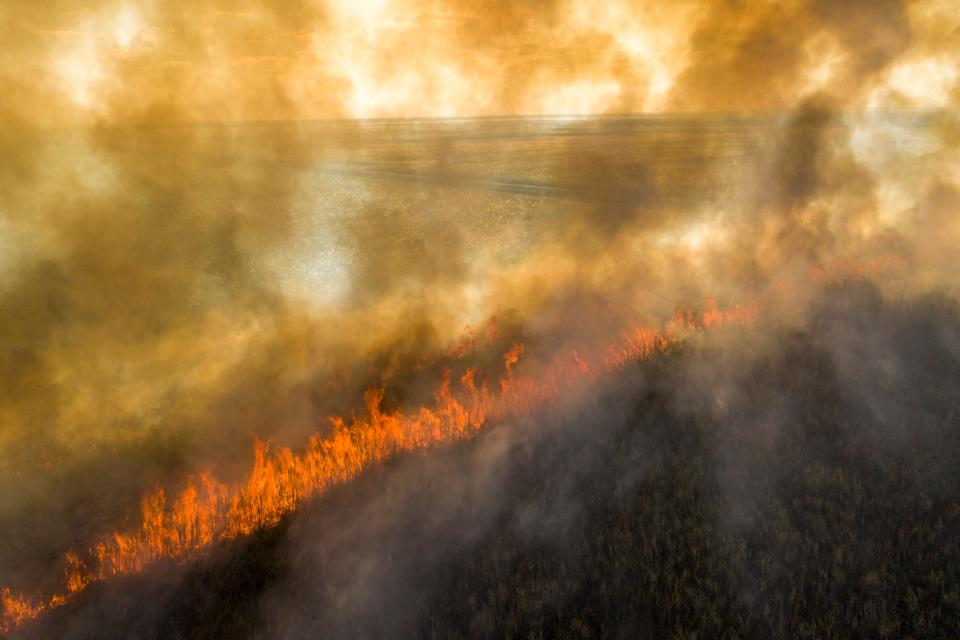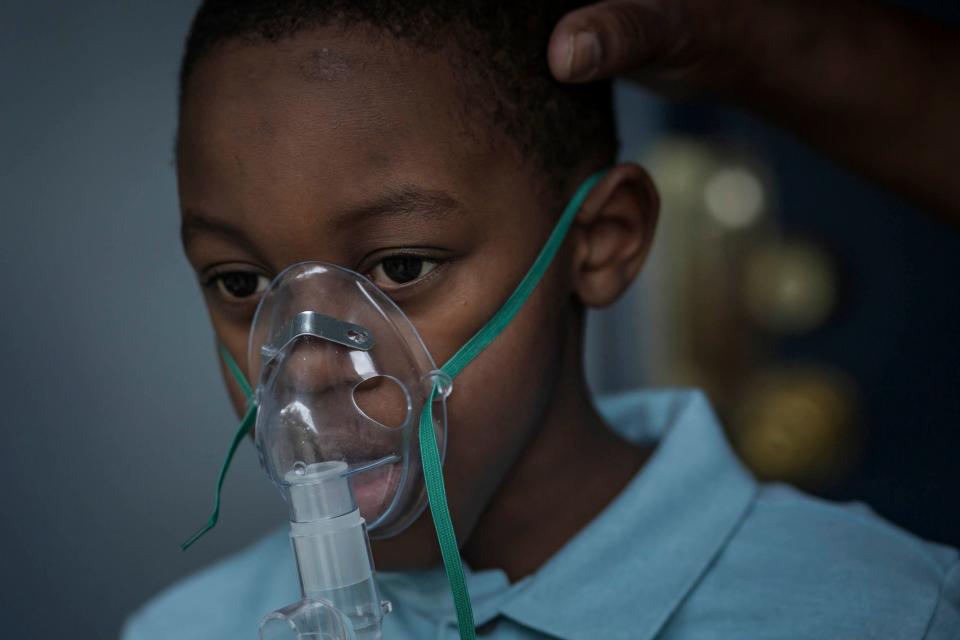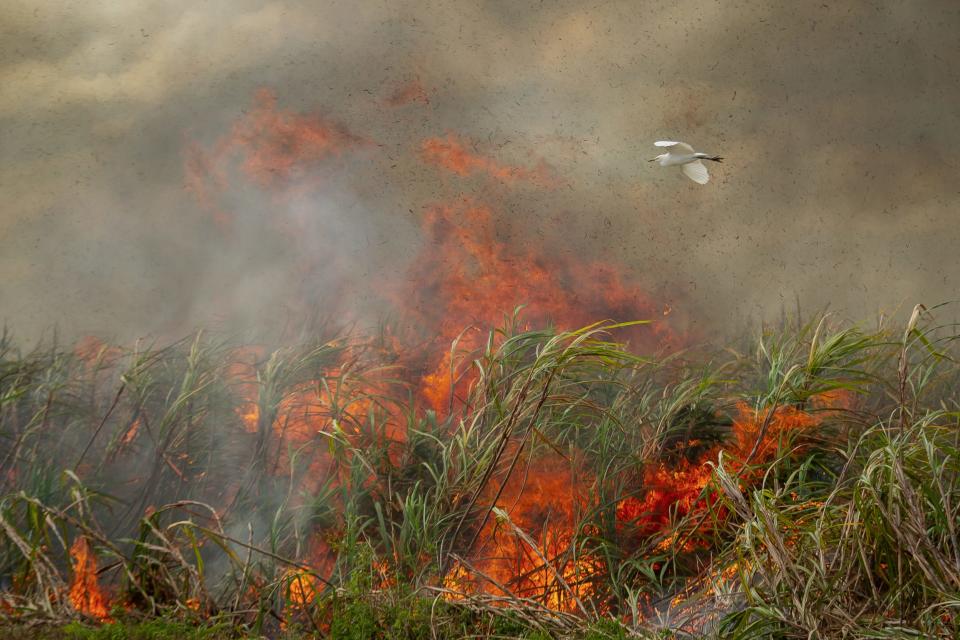Palm Beach Post-ProPublica's 'Black Snow' series on cane burning wins 3 more national awards
"Black Snow," the investigative reporting series on sugar-cane burning in the Glades region by The Palm Beach Post and ProPublica, has been recognized with three more national awards.
The latest come from the National Association of Hispanic Journalists (NAHJ), the AAAS Kavli Science Journalism Awards and the Online News Association (ONA).
NAHJ chose the series as its gold medal winner in the print/digital category.
The series also won the gold award for in-depth science reporting, an AAAS Kavli Award.
ONA honored the series for its science reporting with the 3M Truth in Science award for large newsrooms.
Top journalism contest: Post/ProPublica investigation on sugar cane burning a finalist for the Pulitzer Prize
Link to deaths: Sugar cane fire pollution kills up to three South Floridians yearly, study finds
About the investigation: 5 things to know from Palm Beach Post/ProPublica Pulitzer finalist on cane burning

The reporting and data collection effort was led by Palm Beach Post investigative reporter Lulu Ramadan (now with the Seattle Times). Ramadan worked with ProPublica reporters — designer and developer Ash Ngu, engagement reporter Maya Miller and video journalist Nadia Sussman. The Post’s Hannah Morse and ProPublica's Bianca Fortis also contributed. Thomas Cordy and Greg Lovett of The Post delivered the visuals.

The effort was a finalist for journalism's most prestigious award, the Pulitzer Prize.
Over 18 months, amid the most vulnerable days of the COVID-19 pandemic, the reporting team interviewed dozens of people living amid the sugar cane fields and obtained hundreds of public records from environmental and public health agencies.
The team also had local residents help do their own air monitoring, consulting with six experts in air quality and public health from universities across the country. The sensors were installed at homes in one of the country’s most underserved communities, the Glades region in western Palm Beach County.
The investigation: Here are the first 2 parts of the Black Snow sugar cane burning series, a finalist for the Pulitzer Prize
More on cane burning: Glades residents left behind: Nikki Fried’s ‘changes’ to cane burning served only Big Sugar
Sugar companies: How the sugar industry makes political friends and influences elections

The investigation found that state regulators were relying on data from a single monitor that was unfit to enforce federal clean-air standards. It was only after the team started asking questions that Florida officials replaced the unfit monitor, and leading members of Congress called for the Environmental Protection Agency to investigate air monitoring in Florida and change national pollution standards.
The Palm Beach County state-run health department upgraded the air-monitoring equipment, which will allow it to be used to enforce federal pollution standards. Officials said they were in talks with the EPA to expand air monitoring in the state.
Throughout the reporting process, Florida’s largest sugar producers challenged the news organizations’ approach and methodology. They maintained that burning was safe and could not be stopped without significant job loss in a region where unemployment is already high.
But the reporting team learned that other countries had found ways to harvest their crops without those burns. Sussman traveled to Brazil, the world’s largest sugar producer, where the state of São Paulo had largely phased out burning years ago after residents there voiced concerns similar to those of Floridians today.
She made a short documentary explaining how the industry switched to another harvesting method, one that has paid off for companies in profit and for the public health. Brazilian officials in government and industry told ProPublica that their solutions could also work in Florida.

Kavli judge Laura Helmuth, editor in chief of Scientific American, said the team’s spotlight on agricultural practices in Brazil as a model for reducing air pollution “was refreshing because the typical script is to cover the Global South as a source of environmental problems rather than solutions.”
Judges in these national contests were impressed with the topic, data collection methods and presentation. They noted that all of the effort culminated in powerful journalism that served communities in need.
The NAHJ award presenter lauded the team's selection of an "uncommon topic" that led to a "scathing picture of the impacts of sugar-cane burning on the public's health, particularly those of color."
Congratulations to “Science Reporting – In-Depth” Gold Award winners @luluramadan, @ashnguuu, @mayatmiller and @nadiasussman. https://t.co/os4UCZzRzZ #AAASKavli2022 pic.twitter.com/jPObeRDMXR
— AAAS Kavli Awards (@AAASKavli) November 10, 2022
Science reporting: Cane burning project 'Black Snow' wins prestigious national science investigative reporting award
Investigative, data journalism : 'Black Snow' sugar-cane burning project wins Best of Gannett award for investigative journalism
Regional, state awards for public service: 'Black Snow' leads way as Palm Beach Post staffers receive honors for their work in 2021
Association of Black Journalists: 'Black Snow' leads way as Palm Beach Post staffers receive honors for their work in 2021
Kavli judge Richard Harris, longtime science reporter for NPR, said the reporting team “took extraordinary steps to explore an important health hazard that primarily harms disadvantaged people. They worked closely with the community, installed air monitoring equipment and analyzed data, all of which they used to tell a compelling story.”
The ONA judges had this to say:
"This entry stood out for its fusion of good writing, visuals, presentation and audience engagement efforts. Judges also liked the team’s explanation of how they gathered their reporting — for instance, calling on experts to advise the reporters’ use of air sensors to get data."
"Black Snow: Sugar's Burning Problem" has been honored with first-place finishes in a number of national, regional and state awards.
Holly Baltz is the investigations and school editor at The Palm Beach Post. You can reach her at hbaltz@pbpost.com. Support local investigative journalism. Subscribe today.
This article originally appeared on Palm Beach Post: 'Black Snow' series on cane burning wins 3 more national awards

